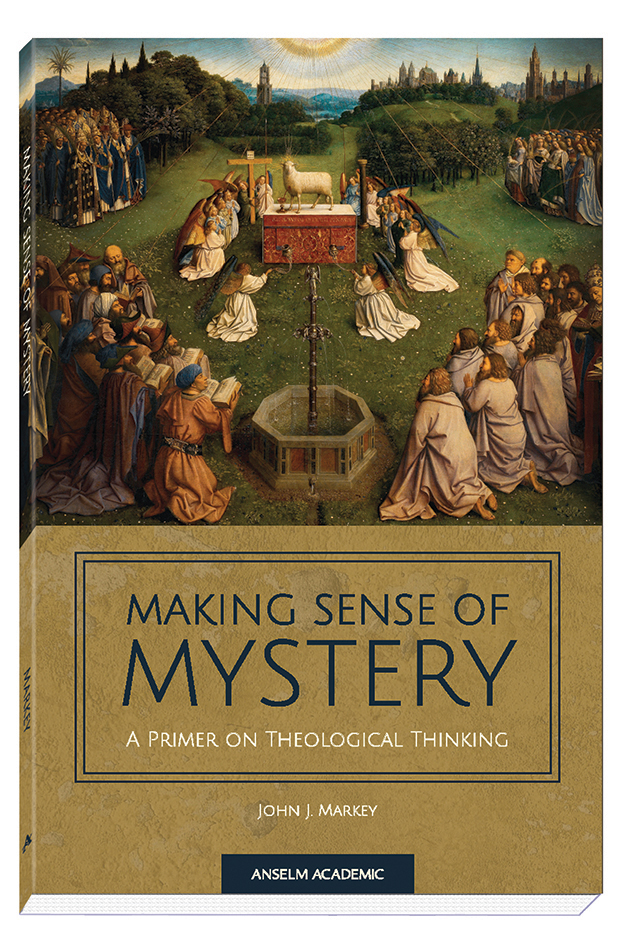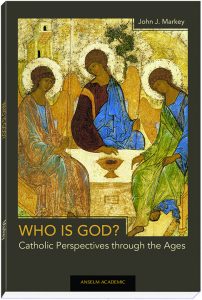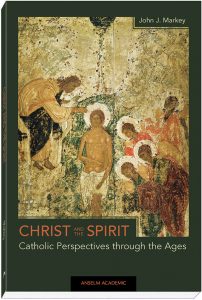Making Sense of Mystery
A Primer on Theological Thinking
About This Book
Overview
What is the meaning of life?
Entering this into an internet search engine will yield millions of results that reflect centuries of thinking on this question. With so many competing claims about the meaning of existence, how can a person sort through the responses?
In Making Sense of Mystery: A Primer on Theological Thinking, John Markey offers a concise introduction to the human experience of mystery, including the nature of belief and doubt, the role of tradition and authority, diverse forms of knowledge—including through art, and the process of human transformation that results from these exercises and experiences. Rooted in the Christian tradition, this book lays the groundwork for theological thinking (not just learning theological concepts) and invites readers to reflect on their own understandings of mystery and meaning. With a glossary, review and discussion questions, real-world connections, and chapters on the discipline of theology, Making Sense of Mystery is a perfect primer for the modern classroom.
John J. Markey, OP, PhD, is an associate professor of theology and director of the Doctorate in Spirituality Program at the Oblate School of Theology.
Details
| Weight | .25 lbs |
|---|---|
| Dimensions | 6 × .50 × 9 in |
| Pages | 96 |
| Print ISBN | 978-1-59982-955-5 |
| Item # | 7087 |
|---|
Customer Reviews
Making Sense of Mystery provides a thoughtful and accessible introduction to theology by exploring the depths of lived experience. In human struggle and love, fear and hope, Markey finds hints of a mystery that is as much a challenge to faith as to doubt. On the basis of these shared experiences, Markey ably introduces the major themes of fundamental and systematic theology.
John Markey, a widely respected systematic theologian in the United States, has given us a terrific primer on how to think theologically. A perfectly framed and highly readable introduction for college students, Making Sense of the Mystery invites students to understand theology, its relation to reason, its sources, and its methodology. Drawing on important philosophers and theologians, past and present, Markey skillfully guides the reader through all the primary issues that make theology competent, accountable, and, most importantly, relevant.
Making Sense of Mystery is an excellent guide for anyone wanting to make a first foray into theological thinking. In clear and accessible prose, with pertinent examples drawn from everyday life, it draws the reader into the theological world step by step. The questions for review and discussion make it user-friendly for small groups exploring together. Ideal for the seeker who wants a sensible introduction to dealing with the profound questions that are part of human existence, this book deserves a wide readership.
Markey’s primer on theological thinking dispels some common misunderstandings of the theological enterprise. His clear and compact volume outlines basic contours of the sources, methods, and purposes of theology, highlighting its contextual, practical, and spiritual dimensions. He presents theology as one important facet of ecclesial and ordinary human life—a refreshing read that will enable theological newbies to jump into the work of engaging and doing theology themselves. For intermediate and advanced learners, this book provides a succinct reminder of core themes and principles that manifest throughout Christian theology. A great introduction to the theological project!
This excellent primer on studying theology by John Markey begins with the experience of mystery and the search for meaning, thus countering any idea that theology concerns problem-solving. Markey helpfully distinguishes “faith” (a personal relationship with God) from abstract “belief” and also refreshingly acknowledges the dynamic interplay of belief and doubt.
The book emphasizes how our contexts shape our questions. Christian theology is also fundamentally corporate with a “tradition” of central texts and thinkers. Markey outlines major theological concepts such as “God” or “revelation” and describes the classic branches of theology plus new fields such as feminist theology, liberation theology, and black theology. Each chapter ends with questions to deepen the reader’s understanding and there is a useful glossary of theological terms. Creative connections between theology and art are briefly illustrated by the famous Ghent altarpiece.
Markey encourages us to actively engage in theological reflection rather than merely to study the ideas of others. In the end, “doing” theology is personal, critical, contextual, and practical within a community of faith.
In Making Sense of Mystery, John Markey presents an accessible and engaging introduction to the discipline of theology. Also an invitation to more seasoned scholars to consider their own operative approaches, the book is clearly written, comprehensive, and conversant with major streams of theological scholarship. With easy-to-digest examples, questions for discussion and ongoing exploration, and up-to-date resources for further reading, this book is designed for the classroom. Yet it also implicitly challenges narrow approaches to theology that overlook the variety of sources and methods drawn upon by the discipline.
John Markey’s primer Making Sense of Mystery invites students to learn theology by doing it. With an engaging style, he prompts them to probe their own experiences of curiosity, uncertainty, and inquiry to show how theology emerges from life’s deepest questions. Markey’s clear, concise distinction of mystery from problem breaks the unnecessary tension with science to show the breadth and depth of what it means to “know.” In just one example of the text’s masterful pedagogy, Markey models theological thinking by linking critical analysis to creative insight in a guided exploration of the Ghent Altarpiece.
In Markey’s hands, faith and theological thinking become dynamic practices, shaped by critical reflection and expressed in action to meet the needs of the times. He honors doubt, critique, and resistance as part of the encounter with the mystery of God and a hallmark of a mature faith. Making Sense of Mystery invites students, whatever their worldview, into conversation with the Christian tradition in the shared human endeavor to understand the world and our place in it. With pedagogical and theological sensitivity to the diverse needs and questions of undergraduates, Markey’s text is an excellent and welcome choice for an introductory course.
Table of Contents
Introduction
- Encountering Mystery: Knowledge, Belief, and Interpretation
- The Experience of Mystery
- Experience, Belief, and Knowledge
- Beliefs, Knowledge, and Community
- Tradition, Traditions, and Authority
- Conclusion
- Faith, Conversion, and Revelation
- Faith as a Response to Mystery
- Religious Conversion
- Conversion in the Christian Tradition
- Revelation and Its Sources
- Expressions of Revelation: Scripture and Tradition
- Conclusion
- Doing Theology in a Contemporary Context
- Characteristics of Christian Theology
- ART AS THEOLOGY EXPLORING THE GHENT ALTARPIECE
- Theology in Ordinary Life
- Conclusion
- Elements of Academic Theology
- Method in Theology
- Primary Branches of Academic Theology
- New Fields of Theology
- Conclusion
- Glossary
- Index





